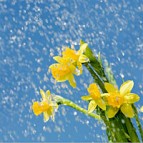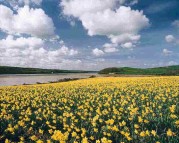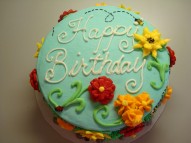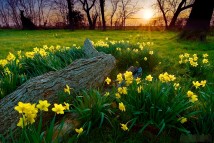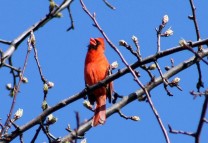April Showers (4 Seasons/Spring)
Music by Louis Silver, lyrics by B.G.(Buddy)De Sylva, 1921. Introduced and forever associated with Al Jolson. One of many "cheer-up" songs from the old days utilizing the "bluebird of happiness" as a reason to be hopeful. In an eternally tough world, such hope and faith expressed on the wings of song are most welcome.
Daffodils (William Wordsworth) (Spring)
English poet William Wordsworth's (1770-1850) famous poem. Inspired by a walk with the poet's sister in England's Lake District, 1802. Published in 1807 in "Poems in Two Volumes." Music original to this site.
Happy Spring Birthday (Spring)
"Happy Birthday," perhaps the most sung song in the English language, dates back melodically to 1893. Two sisters, Mildred Hill and Patty Smith Hill, included a classroom greeting "Good Morning To All" in a published book called "Song Stories for the Kindergarten." The lyrics now sung worldwide evolved over the next 40 years from the Hill sisters' original words to what everyone now knows as "Happy Birthday To You."
Morning Has Broken (Spring)
Music: 19th century Scottish tune "Bunessan." Lyrics by British children's author and poetess Eleanor Farjeon. Popularized by British Pop singer Cat Stevens.
Sheep May Safely Graze (J.S. Bach) (4 Seasons/Spring)
The most famous theme from J.S. Bach's secular "Hunting Cantata," BWV 208, composed in Leipzig in 1713 as a commissioned birthday gift for a local German aristocrat.
Spring Song (Mendelssohn) (4 Seasons/Spring)
The 6th selection from the 5th volume of "Songs Without Words" by German composer Felix Mendelssohn(1809-1847). "Frulingslied" (Spring Song) has also been known as "Camberwell Green" after the area of South London where Mendelssohn was staying when he composed the piece. Used in countless cartoons and films, usually in comic situations where the presence of twittering birds has been required.

